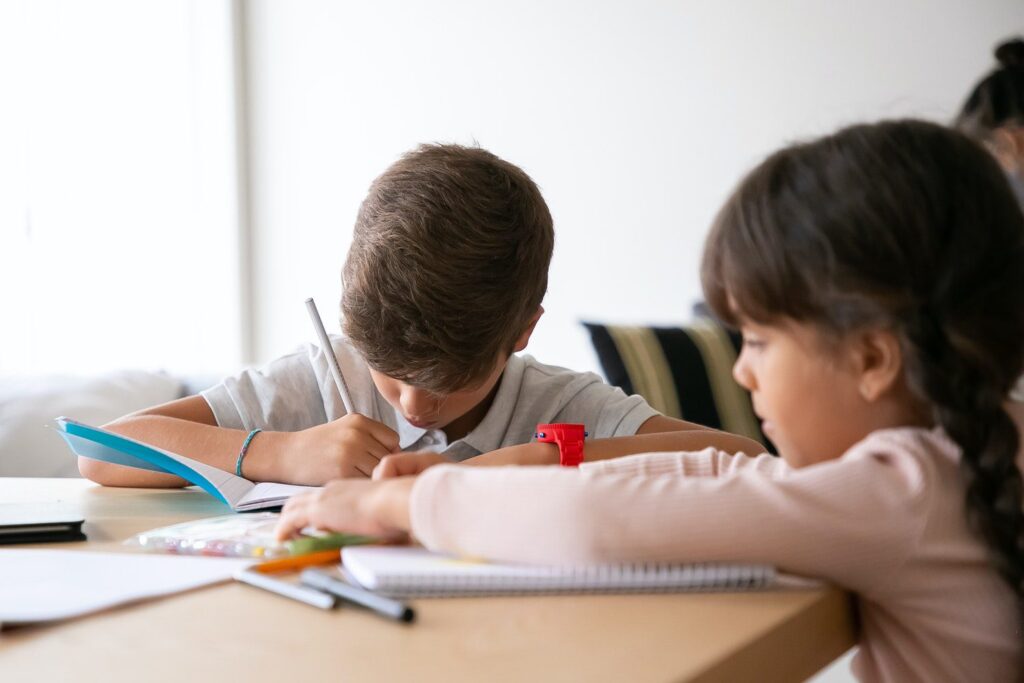September has brought for many of us a big change – our children may be starting school for the first time. Lots of parents will be saying goodbye to their little ones at the gate and sending them off into their new school, new classrooms and new uniforms. This is a big adjustment for the children as well as the parents. We all need a little bit of support in this time of change so we have compiled a list of ways that parents can support their children as they start school.
- The first way to try and support your child as they start school is to help them to become as independent as you can. Encourage them to get used to playing and mixing with other children if they haven’t been in a preschool setting already. Try and encourage your child to take turns with other children, and to understand how their actions can affect other children.
- Try and get your child to be confident when getting themselves dressed independently and completing tasks on their own. Give them a little bit of responsibility by getting them to look after their possessions as much as you can.
- Read books with your child about starting school, discuss what they talk about and how your child is feeling about starting school. You might want to share about your time at school and tell stories about the fun memories you still have to show them that school can be fun, as well as a place to learn. It is important to talk positively to your child about school, but also to listen to any anxieties or worries that your child may have.
- Explain to your child as much as you can about what will happen during the school day for them. Discuss any routines that the school may have and the expectations that the teacher will have of them. Change can be a big thing for the child so letting them know what will happen will help to relieve some of their anxieties.
- Have someone that you can talk to as an adult to discuss any of your worries or fears. Your child will be able to pick up on the fact that you are anxious and it will pass onto them. It is perfectly normal to have worries or concerns yourself so remember to discuss them.
- Ensure the school know about your child and if they have medical needs, likes and dislikes etc so they can make your child as comfortable as they can be. The teachers will spend more time a week with your child than with you, so they will get to know them well, but giving them lots of information to start to build that relationship is a good start.
- Make a start on early literacy skills. Work with your child to recognise their name and the letter sounds that make it up. This will help them to find their peg and any named clothing items. Build up their fine motor skills with activities at home such as building lego, threading beads onto string and using scissors. This will build up their strength for writing. Read and share lots of books with your child, encourage them to join in with rhyming words or repetition.
- Make a start on early numeracy skills. Look at numbers below 10 with your child in different fun games and activities. Share counting songs, go on a number hunt, discuss questions like which pile has more etc.
- Build up your child’s concentration by building it up to 10-15 minutes as this will be a good start for their school life. Enjoy extended playtime together by trying to complete a full building of a Lego set for example, or play race the clock games. Give your child simple instructions to follow and then make the list longer of things you have asked them to do.
- Practice the school run so that the children know what they are to expect in the mornings. Try to get them out of bed and up by the time you would normally need to leave. Do the walk or drive to school a few times beforehand, make it fun for the child, discuss what you can see etc.
All clinicians at Oxford CBT practice Cognitive Behavioural Therapy, or are Psychologists Psychologists, offering evidence-based interventions and support for a range of issues for both young people and adults. If you would like to book an appointment you can do so on our online booking portal. If you have a question please get in touch via our online contact form or call us on 01865 920077. We also provide support at Birmingham CBT.



